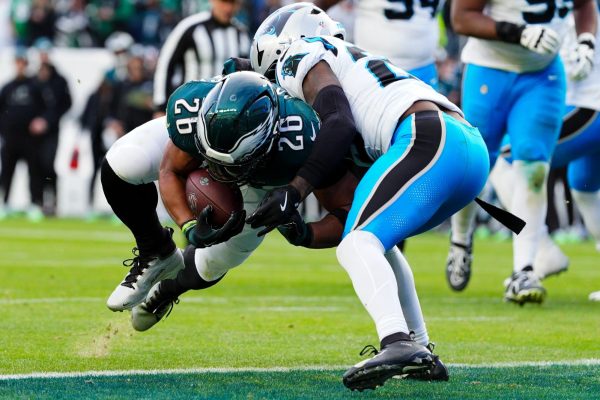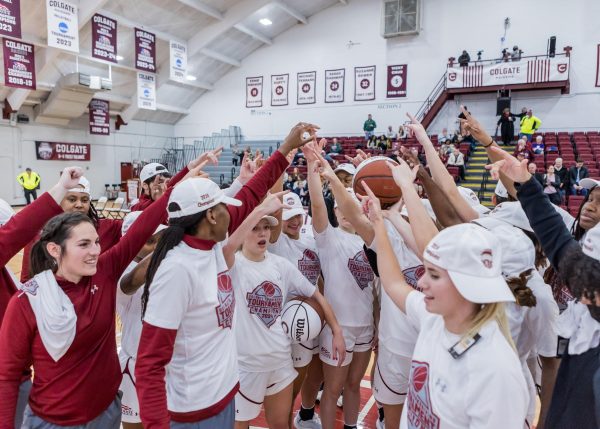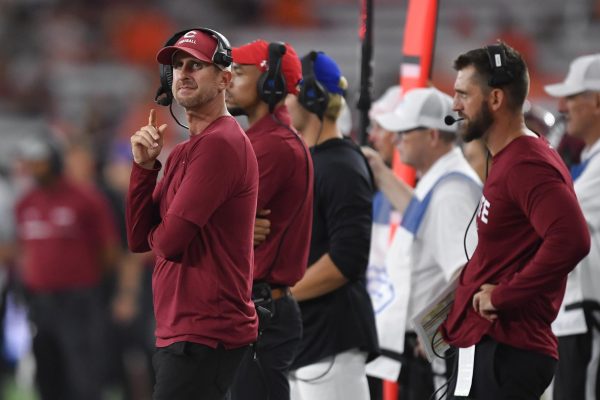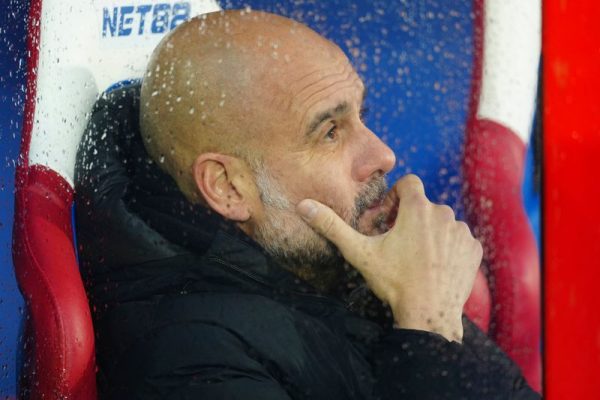Name Image and Likeness at Colgate
July 1, 2021, marked a pivotal moment in the landscape of college athletics. College athletes now have the opportunity to use their name, image and likeness (NIL) to promote and profit off their brand. The Maroon-News turned to Patriot League Commissioner Jen Heppel, Colgate Athletic Director Nicki Moore and various student-athletes: junior Colton Young (men’s hockey), senior Julia Kurowski (women’s volleyball), senior Tanner Gates (women’s hockey), graduate student Paul McAvoy (men’s hockey) and junior Keegan Records (men’s basketball) for their insight into how this may change the landscape of college athletics, and the implications of the new NIL rule.
NIL is essentially an athlete’s personal brand, profitable off of a variety of channels. This might include endorsement deals, selling autographs, running or hosting camps, selling merchandise, being involved in the creator funds for YouTube and TikTok, etc. When it comes to regulation, Heppel explained that some states have rules while some don’t. While every state now allows for NIL, some have added additional regulations, such as Pennsylvania preventing sponsorships with companies that promote vices such as tobacco, gambling and drinking.
Outside of state regulation, there are both NCAA guidelines and institutional (school) guidelines. Each institution has to come up with its own policy regarding what athletes can and cannot do, based on existing sponsorships, the use of the school logo, etc. For example, an institution might prevent a student-athlete from entering into an agreement with Pepsi if the school is sponsored by Coca-Cola.
The NCAA has stepped back from regulation of NIL but left two caveats in place. The first is that all rules around recruiting inducements remain – a brand cannot pay an athlete to attend a school. The second is that the athlete has to actually perform the work to get paid.
As for the Patriot League as a whole, there is no additional level of regulation that is in place. Instead, Heppel explains, the Patriot League is focused on providing resources. The Patriot League has entered into a partnership with a product called INFLCR – a suite of products that are available to all student-athletes in the league. INFLCR has two components. The first is content management, which allows student-athletes to access videos and photos of themselves during competitions and practice. The second component is INFLCR verified, which allows athletes to access marketplace apps like Cameo and general educational in-app training about brand strategy and compliance.
From a Colgate standpoint, Moore dives more into the NIL Task Force that was created in February 2021. This group is made up of athletic administration, staff, coaches and campus partners with six areas of focus: Administrative Framework, NCAA Monitoring, Educational Efforts, Alumni Management, External Relationships & Recruitment and Student-Athlete Resources & Support. Currently, the task force is focused on Administrative Framework, Education and Student-Athlete Support.
Moore explains that the aim for student-athlete support is twofold. The first goal is to make sure that student-athletes are educated on institutional and NCAA regulations, as well as any state or federal law considerations. The second is providing programming and support opportunities that can prepare students to pursue opportunities if they are interested. Through INFLCR and Career Services, the Task Force has been developing a pilot support program that includes topics such as navigating different types of business entities, tax and financial implications, personal branding, networking and mentoring.
Overall, both Heppel and Moore agreed that the new NIL rule is positive for student-athletes. There are a lot of unknowns in this emerging landscape, and it will take work for it to be a net positive, both on the athlete side and the administrative side. One of the most prevalent concerns has been related to equity in the space in regards to gender, race, sport participation, etc., and Moore voiced the importance of keeping a pulse on this area.
However, both agree that it has been a long time coming for athletes to profit off their NIL, and it will be hugely profitable, beyond just money, for student-athletes to be able to create relationships that can carry into the post-college landscape.
Turning to Colgate’s own student-athletes, the Maroon-News tried to get a sense of the reactions to NIL legislation. As a whole, all agreed that the NIL legislation is a great opportunity for all college athletes to be rewarded for their long hours spent training, practicing, and competing.
McAvoy of the men’s hockey team emphasizes that NIL will be particularly beneficial to incoming recruits and freshmen who will have far more time to build and develop their brands, as compared to current upperclassmen. Additionally, when paired with the Colgate academic experience, student-athletes now have a greater ability to explore unique career paths.
When asked about participation in NIL, the general consensus was that they would love to participate in NIL if given the opportunity – whether that be to make money, support local business, try something new or promote awareness of a cause close to their heart. All felt as though it would only be a positive impact for their teams, and feel excited for their teammates who have already taken opportunities. Young of the men’s hockey team is one athlete that has taken advantage of NIL to become a Barstool Athlete.
Colgate student-athletes and Colgate Athletics as a whole are now in a unique and exciting position to grow the success of the entire athletic department, individually and collectively. While the implications of the NIL legislation are unknown its development will definitely be worth keeping an eye on in the years to come.






